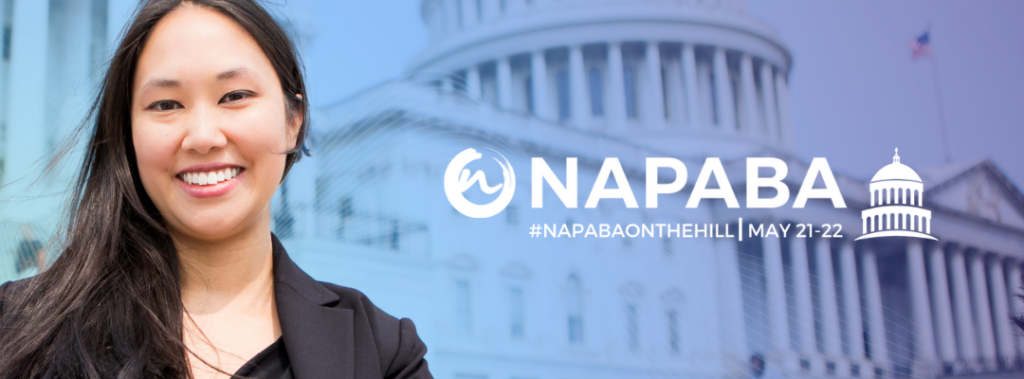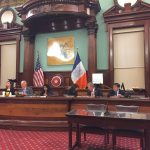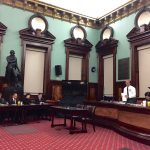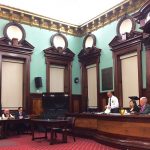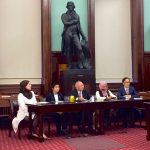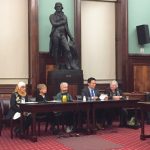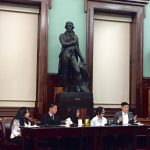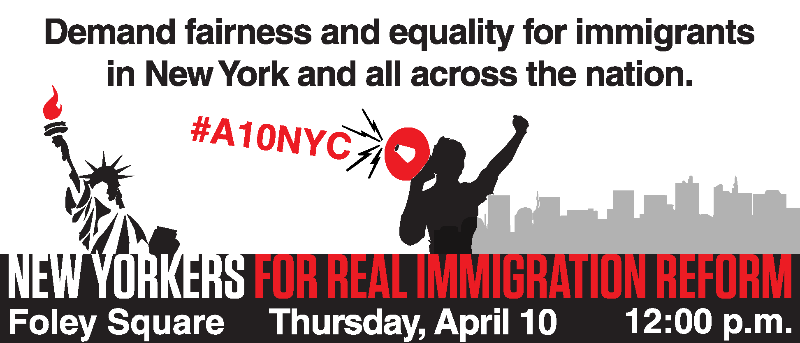
NAPABA hosted its annual Lobby Day on May 20-21, 2025, bringing together members of our community from across the country to Washington, DC. During meetings with Congressional representatives, attorneys, law students, and community leaders advocated for supporting the AANHPI community, advancing a fair and humane immigration system, defending the rule of law and legal profession, and advancing democracy and civil rights.

| 60+ Meetings | 20+ States Represented (plus the District of Columbia and Guam) |
Highlights of Our Lobby Day Include:
Robust Representation
With our participants hailing from over 20 states, the District of Columbia, and Guam taking part in over 60 meetings with congressional offices on both sides of the aisle, NAPABA demonstrated its strength and its commitment to amplifying AANHPI voices in the halls of power.
Advocacy Training
Prior to the meetings, we organized targeted training sessions to equip our participants with the necessary tools and strategies to effectively communicate our policy priorities.
Policy Priorities
Throughout our meetings, we tackled issues critical to the AANHPI community. We advocated for language access protections, opposed discriminatory measures like anti-Asian alien land laws, and supported teaching AANHPI history in schools, including recognizing the legacy of Fred Korematsu. We backed voting rights legislation, LGBTQ+ rights, and funding for legal services. We called for the protections of judges, the right to counsel in immigration settings, and supporting asylum seekers.
Our priorities during Lobby Day reflected the day-to-day policy developments impacting the AANHPI community. Most recently, on May 28, the federal government announced that it would “aggressively revoke visas for Chinese students.” During Lobby Day, we opposed legislation that would impose an outright ban on the issuance of student visas to any citizen of China. Such policies are a relic of history and harken to the 1800s when our communities endured discriminatory laws like the Chinese Exclusion Act. They were wrong then, and they remain wrong today.
Meaningful Engagements
We met with numerous lawmakers and their staff, fostering meaningful dialogues, and building relationships that will be instrumental in advancing our policy objectives. Our Lobby Day participants skillfully articulated our positions, presented compelling arguments, and shared personal stories to humanize the issues that we face. On the evening before our training at our Congressional Reception on Capitol Hill, our participants heard from leaders directly, including Sen. Mazie Hirono (HI), Rep. Ted Lieu (CA-36), and Rep. Grace Meng (NY-06). Our participants also heard from Rep. Raja Krishnamoorthi (IL-08) during the debrief session.
Regardless of the political dynamics in the Nation’s capital, NAPABA demonstrated its power during Lobby Day. Our members fanned out on the Capitol grounds, engaged with key Congressional offices, and called for their elected representatives to support policies that advance our communities. We are the national voice of the AANHPI legal community, and we stand for the rule of law. Learn more about NAPABA’s advocacy at napaba.org/page/advocacy.
Thank You to Our Host



